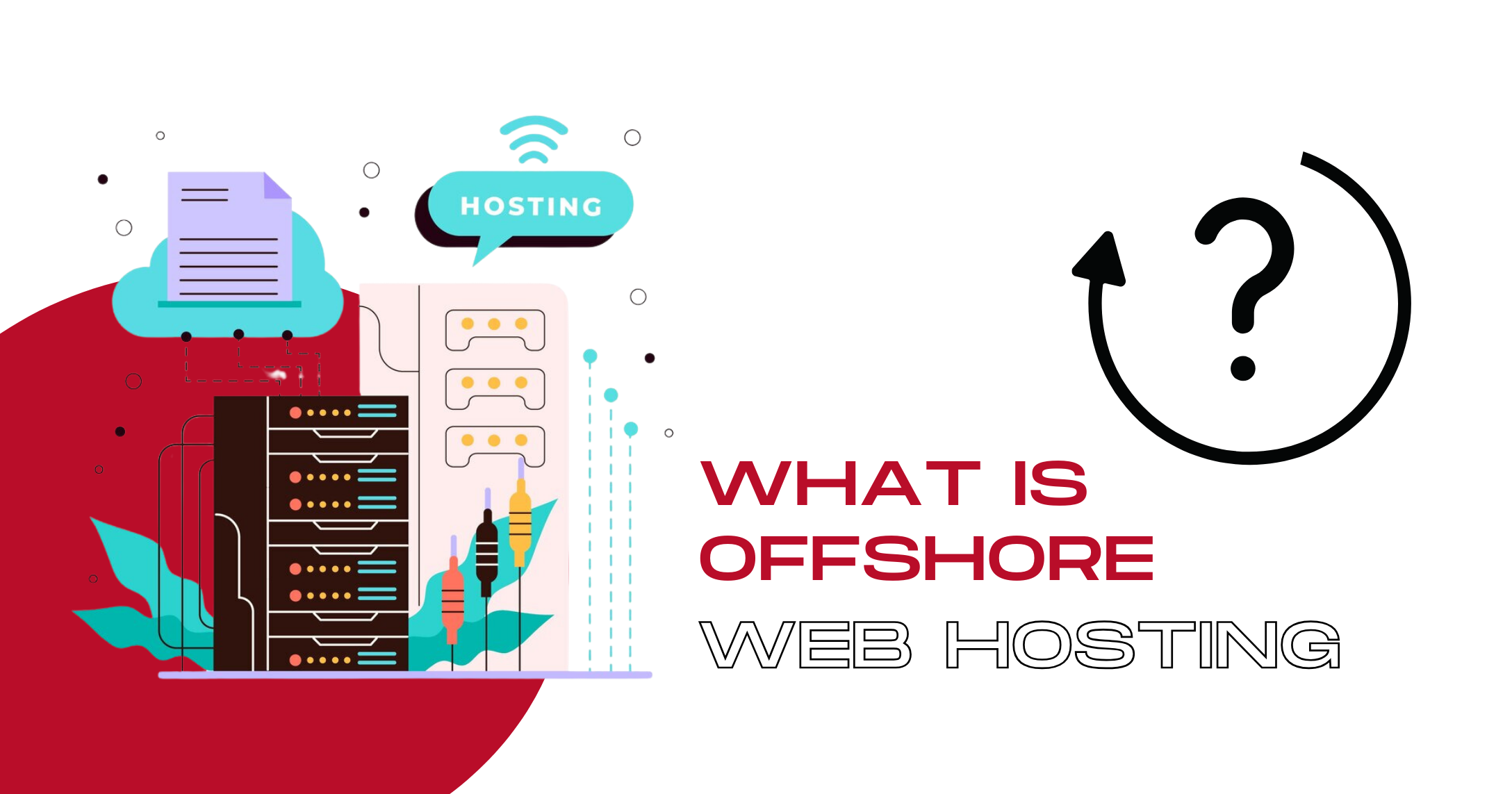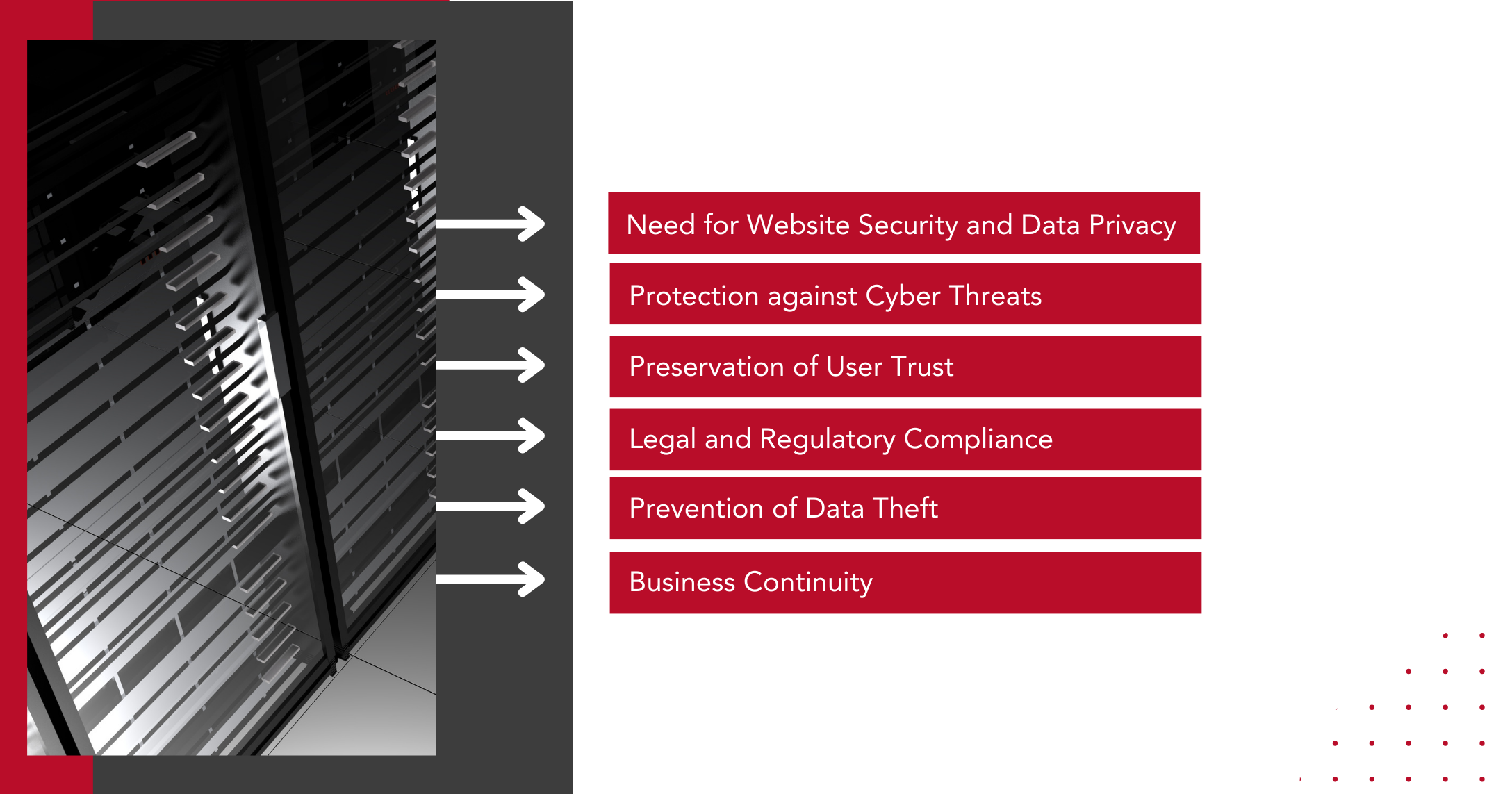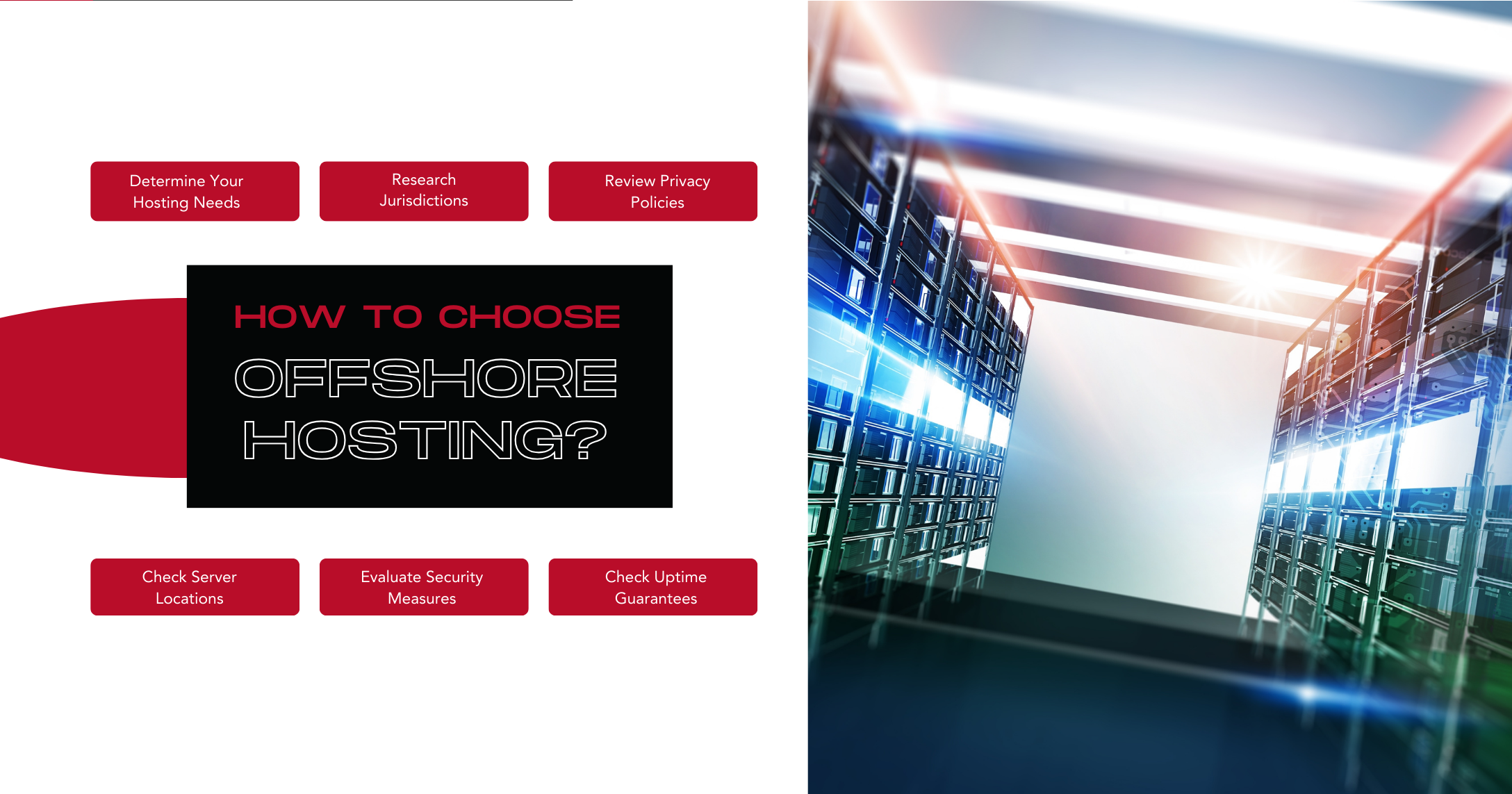“Fortify Your Digital Fortress”
In an age where the digital realm is our second home, website security, and data privacy have never been more critical. The choice of web hosting plays a pivotal role in safeguarding your online presence. Enter offshore web hosting a powerful and strategic solution that offers enhanced security and robust data privacy.
In this comprehensive guide, we’ll explore the world of offshore web hosting, its advantages, and why it’s often considered the best choice for those seeking trusted offshore web hosting services.
What is Offshore Web Hosting all about?

Offshore web hosting refers to hosting a website on servers in a foreign country, often far from the website owner’s or target audience’s location. This approach is chosen for various reasons, and it offers unique benefits compared to traditional web hosting, which operates within the website owner’s home country.
Why Individuals or Businesses might choose Offshore Web Hosting?
Offshore web hosting involves using servers and data centers located in a different country or jurisdiction than the website owner. This practice allows website owners to store and manage their websites, databases, and associated data on servers outside their home country’s borders.
01. Need for Website Security and Data Privacy:
Website security and data privacy are essential components of today’s digital landscape as critical safeguards for individuals, businesses, and organizations. Website security and data privacy are not optional considerations in today’s digital landscape but fundamental necessities. They protect against a wide range of threats, legal consequences, and financial risks while preserving user trust.
The need for robust website security and data privacy measures becomes more apparent as the internet becomes increasingly integrated into our daily lives.
Here’s why they are crucial:
02. Protection against Cyber Threats:
Cyber attacks, such as hacking, malware, and phishing attempts, constantly threaten websites. These attacks can compromise sensitive data, disrupt services, and damage a website’s reputation. Strong security measures are necessary to thwart these threats and ensure that data remains confidential and intact.

03. Preservation of User Trust:
User trust is paramount in the digital age. Users who visit a website expect their personal information to be handled securely and responsibly. Data breaches and security lapses can erode this trust, leading to a loss of customers and reputation damage.
04. Legal and Regulatory Compliance:
Many countries have implemented data protection and privacy regulations, such as GDPR in Europe and CCPA in California. Websites that collect and store user data must adhere to these regulations, or they can face significant legal consequences and fines. Compliance is a legal requirement and a moral obligation to protect user rights.
05. Prevention of Data Theft:
Data theft can lead to severe financial losses, identity theft, and fraud. Websites often store sensitive user information like email addresses, payment details, and personal identifiers. Robust data privacy measures are essential to prevent unauthorized access and data breaches.
06. Business Continuity:
For businesses and e-commerce websites, ensuring their online platforms’ continuous availability and functionality is crucial. DDoS attacks, server failures, or security vulnerabilities can disrupt operations, causing revenue losses and damaging the brand’s credibility.
07. Protection of Intellectual Property:
Websites often contain valuable intellectual property, including proprietary code, content, and designs. Unauthorized access or theft of this intellectual property can have far-reaching consequences, including financial losses and competitive disadvantages.
08. Mitigation of Reputation Risks:
A security breach or data leak can tarnish an organization’s reputation, resulting in lost customers and decreased revenue. It can take years to rebuild trust after a significant security incident.
09. Cyber Security Threat Evolution:
Cyber threats are constantly evolving, becoming more sophisticated and challenging to combat. Website security measures must adapt to these evolving threats to remain effective.
10. Prevention of Identity Theft:
Personal information stored on websites can be used for identity theft, leading to financial and emotional distress for individuals. Data privacy measures are essential for protecting users from this risk.
11. Global Accessibility:
Websites serve a global audience, and countries have varying privacy expectations and legal requirements. Implementing data privacy measures ensures that a website can be accessed and used by individuals worldwide without violating their rights.
How to Choose Offshore Hosting?
Choosing the best offshore web hosting services requires careful consideration and research. The following tips will help you make an informed decision when selecting an offshore hosting provider:
01. Determine Your Hosting Needs:
Assess your website’s requirements, such as the amount of storage, bandwidth, and technical features needed. Consider your target audience and their geographic locations to determine server locations.
02. Research Jurisdictions:
Investigate the legal and regulatory environment of the hosting provider’s jurisdiction. Ensure it aligns with your website’s content and objectives. Look for countries with strong data protection and privacy laws.
03. Review Privacy Policies:
Read the hosting provider’s privacy policies to understand how they handle your data and whether they offer anonymity options. Ensure they have strict privacy practices in place to protect your information.
04. Check Server Locations:
Confirm the server locations the hosting provider offers and select the ones that best serve your target audience. Geographic redundancy can be advantageous for minimizing downtime.
05. Evaluate Security Measures:

Inquire about the security measures the provider has in place, such as firewalls, DDoS protection, SSL certificates, and regular security updates. Assess their commitment to safeguarding your website from cyber threats.
06. Check Uptime Guarantees:
Look for hosting providers that offer high uptime guarantees (ideally 99.9% or higher). Uptime is crucial for the accessibility of your website.
07. Customer Support:
Evaluate the quality and responsiveness of customer support. Ensure they offer 24/7 support to address any issues promptly. Test their response times through pre-sales inquiries or support queries.
08. Scalability:
Choose a hosting provider that offers scalability options. Your website’s needs may change over time, so the ability to upgrade or downgrade hosting plans is essential.
09. Anonymity Options:
If anonymity is a priority, verify whether the hosting provider offers anonymous hosting solutions, such as domain privacy services or anonymous payment methods.
10. Network Speed and Performance:
Assess the provider’s network speed and performance by checking if they use high-speed data centers and network infrastructure. Look for low-latency connections to your target audience.
11. Backup and Disaster Recovery:
Inquire about the provider’s backup and disaster recovery policies. Ensure that your website’s data is regularly backed up and recoverable in case of issues.
12. Terms of Service and Usage Policies:
Carefully review the provider’s terms of service and usage policies to understand any restrictions or guidelines that may affect your website.
13. Reputation and Reviews:
Research the hosting provider’s reputation by reading reviews and testimonials from other clients. Look for providers with a history of reliability and positive customer feedback.
14. Cost and Payment Options:
Compare pricing plans and payment options, including accepted currencies and methods. Be cautious of exceptionally low-cost providers, as quality and security may be compromised.
15. Legal and Tax Considerations:
Consult with legal and financial professionals to understand the legal and tax implications of hosting your website offshore.
16. Trial Period or Money-Back Guarantee:
If available, take advantage of trial periods or money-back guarantees to test the hosting services before committing long-term.
By following these tips and conducting thorough research, you can select the best offshore web hosting services that align with your website’s needs, privacy concerns, and security requirements.
Bottom Line: A Fortress for Your Digital Assets
Privacy is indeed a critical concern in today’s digital age, and offshore hosting is often seen as a means to enhance online privacy and security. Offshore hosting refers to the practice of hosting a website or online services on servers located in a country different from the website owner’s or users’ location.
However, it’s essential to note that offshore hosting is not a one-size-fits-all solution, and its effectiveness in safeguarding privacy depends on various factors, including the hosting provider’s policies, the jurisdiction chosen, and the specific needs and legal obligations of the website owner. Additionally, it’s crucial to ensure that offshore hosting complies with international laws and regulations, as using it for unlawful activities can lead to legal consequences. Ultimately, while a trusted offshore web hosting can enhance privacy, individuals and organizations must carefully assess their unique circumstances and legal responsibilities before making such a hosting decision.
Trusted offshore web hosting services are readily available for those who value keeping their digital presence secure and private. By choosing the best offshore web hosting provider, you can fortify your digital fortress, ensuring your website remains a safe and secure haven in the ever-evolving online world.
PraHost offers you the best hosting services that can provide you with all the intended benefits. From data privacy to security against web threats, services from PraHost can give you all the intended benefits. If you need these services, you can contact the team and we can help you choose the best packages.

